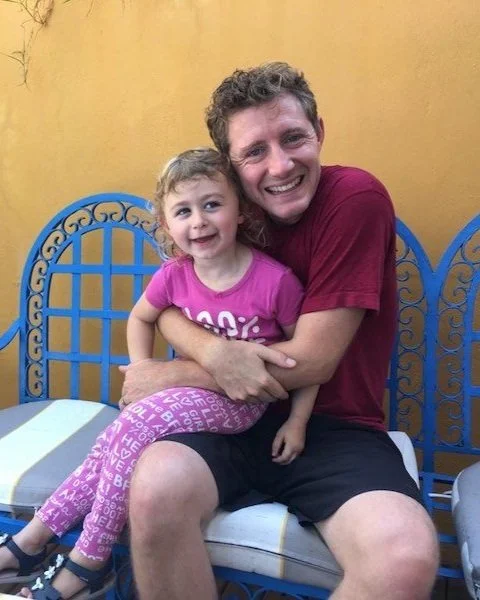Introduction
My husband’s family has a Christmas-poem tradition at least three generations deep.
Here’s the gist: each family member accompanies their physical gift with a poem of sorts—a limerick or a few goofy rhyming lines that preview or tease what’s inside the box.
Some of Sol’s relatives speculate that the practice was born out of Depression-Era thrift: when the money for material goods was scarce, you could gift each other a song.
The tradition has been adapted, abandoned, and revived across multiple Swords-Moore nuclear families in the decades since. Sometimes poems are improvised on the spot. Sometimes they are lyrics sung to a jazzy tune with finger snaps. Often, they are scribbled hastily on a forlorn scrap of wrapping paper minutes before opening presents on Christmas morning.
Depending on who you ask, the Swords-Moore poetry tradition is either: a lovely way to add thoughtfulness and creativity to an otherwise consumerist holiday (me) or an annual torture device for non-versifying computer scientists (my husband).
Unlike other wholesome family-in-law rituals, like the ‘family orchestra’ that assembles each Thanksgiving, in which I play the role of unmusical spectator, I’ve been training my whole life for the Christmas-poem exchange. In college, I gifted my mom an imitation of “The Love of Song of J. Alfred Prufrock” that made her laugh-cry for a good hour afterwards. In my twenties, I penned a seductive sestina to my then-boyfriend that wove the words “ardor” “towel,” and “couch” into every stanza. Amateur-hour verse dedicated with love and humor to a particular individual is my specialty. I was ready to join the Swords-Moore clan.
You know who else has embraced the Swords-Moore tradition of holiday lyricism? My brother-in-law Tim Shenk (who has previously made a brief cameo on this blog). Father of my three-and-a-half-year-old niece Emma. Educator and member of the New York State Poor People’s Campaign. Ultimate frisbee player and one-time participant on the Dominican Republic’s national team. All-around mensch.
Tim and his daughter in the Dominican Republic, 2021.
Although we are different in many respects, we are united in (a) the love of two brainy and beautiful siblings from Syracuse, NY and (b) our love of poetry.
In fact, Tim shenk has authored what I am hereby declaring The Ultimate Christmas Poem. It is the poem you are about to read.
Tim’s poem is the real deal: a bona fide gift that needs no physical analogue to supplement or enhance its value.
On the one hand, this poem feels like it was wrapped up with a big sparkly bow especially for yours truly. It provides evidence for my central argument on this blog: that the demands of childrearing can inspire interesting, worthwhile art. It’s even intertextual with “Miracles,” a poem by one of the subjects of my dissertation research, that expansive American bard Walt Whitman.
At the same time, caregivers of all stripes will find much to love and relate to here. For one, the recognition that our gratitude and exhaustion as parents do not have to be mutually exclusive. We can appreciate the wonder our kids invite into our daily lives while also wanting to reclaim some semblance of an independent self. Or, as Tim does below, even fantasizing periodically of escape.
It’s also a tender, loving poke at Walt Whitman, in the tradition of Allen Ginsberg’s “A Supermarket in California.” A deflation of the poet’s cosmic self, the one who boasted in verse of his omnisexual exploits and multitudinous nature but in practice never changed a poopy diaper at 2 am.
…
This time of year brings out a lethargy, a heaviness in my generally positive, action-oriented self. Maybe it’s the frenzied rush of activity and to-do lists, the end-of-semester grading, the pressure to make Christmas and Hanukkah celebrations special for my kid. Maybe it’s simply the expectation that this season is supposed to be so damn joyful.
So, when Tim’s poem “Miracles” landed in my inbox earlier this month, it sparked (if I may) a Christmas miracle.
Instantly, I felt a lightness and energy, an excitement to get back on this blog for the first time in months to share it with you. Tim’s lines lifted me up and dissipated my Scrooge-like mood—not only because they are beautiful and true, but also because they got me thinking about found family. About the complex web of traditions, family histories, and relationships that accompany the act of attaching oneself to a romantic partner.
I marveled at the meandering paths and accidental junctures that brought us to this unexpected and wonderful place: two siblings-in-law coming together online over poetry, parenting, and adopted traditions.
“Miracles” by Tim Shenk
Why, who makes much of a miracle?
As to me I know of nothing else but miracles
- Walt Whitman
Whether I hold your small warm hand in the dark;
Or hear your response to
what you’re thinking about at 5 a.m.
(“dogs and trucks”);
Or rustle around the neighborhood as you push
your friend’s stroller through dry leaves,
never your own stroller, no;
Or answer your most pressing questions
(“Where does everybody go?”);
Or match A to Alligator, G to Gorilla;
Or spread Nutella on toast and pretend
not to see when you sneak your finger in the jar;
Or keep your wriggling body away from the
menorah again tonight (“they’re not to blow out,
remember, it’s not your birthday
and these aren’t birthday candles”).
To Whitman, every hour of the day and night
Were miracles. Every cubic inch, he claimed.
I have tried. You see here, how I have tried
to see every bit of it as a miracle.
(It goes so fast, they say. Cherish every moment,
they all say, the ones who tell you these things.)
Tonight, though, I am tired.
(I don’t think Whitman raised a toddler. Did he?
Correct me. I just don’t think he would have
had so much time to contemplate
the wonderfulness of the insects in the air,
or the wonderfulness of the sundown, as he put it.)
Is there an adequate metaphor for tiredness,
or wanting a little of your own brain by 8 p.m.
when it is long dark and the heavy blankets call?
To Whitman, the sea was a miracle.
The fishes that swim, the motion of the waves.
To me, the miracle would be not the sea
but a desert island. Just to lie there for a day.
Not even to study the sky or the horizon.
Just – to lie there.
I would get up when the sun was getting low
and clip the top off a coconut with my machete.
Yes, in my miracle there is a machete.
And matches. And driftwood for the evening fire.
I would push the cool ends of long flaming sticks
into the sand in a row
And sit there with them all night if necessary.
Tim W. Shenk, December 4, 2021.
Emma by the shore.
Postscript
Did Tim’s poem leave you craving more gifts of verse from a parent perspective? Same here. Head to Poets.org for other brilliant variations on this theme, from the humorous to the contemplative.
If you are interested in exploring poetry with your child, my friend Elspeth has compiled an excellent list of poetry-book recommendations along with a fun, inventive set of homeschool lessons.

